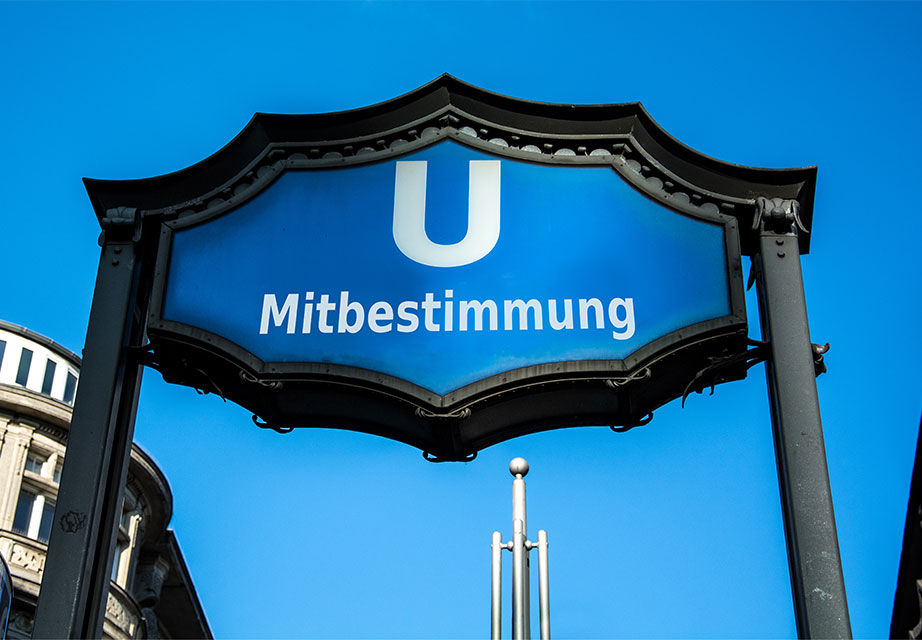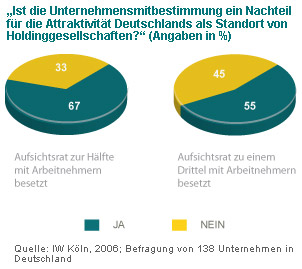Modernise corporate co-determination

©AdobeStock Thomas Reimer
Co-determination on the supervisory board can serve the good of the company and its employees. It must be made fit for the future in the European and international context.
Co-determination in Germany was originally based on the assumption of a contradiction between labour and capital, which no longer exists, at least not today. The trusting cooperation between employers and workforces, but also between shareholders and employee representatives, has proved particularly successful in recent years, and in many areas a partnership of trust between the social partners has developed. By contrast, the statutory rules on co-determination remain in a legal corset that was created in Germany in the 1920s and tightened ever more tightly in the 1950s and 1970s. German corporate co-determination also occupies a special position internationally: no other legal system has such far-reaching rights of participation.
Co-determination often unknown in Europe
In the European partner states, co-determination at company level is often unknown. Some countries provide for alternative forms of participation in the supervisory board or the board of directors of the companies. The dualistic system (two management bodies: executive board and supervisory board) and the more widespread monistic system in Europe (one management body: administrative board) make such different systems necessary. Irrespective of the structure of the management bodies, however, no other legal system has such extensive opportunities for participation and such a large proportion of employee representatives on the supervisory board as German law. This has led to major delays in the development of uniform European company law. In countries where co-determination is known, it is at most one third of employee representatives on the company's supervisory body. In this respect, German co-determination also regularly proves to be an obstacle to uniform European regulations in company law.
Open up corporate co-determination for agreements
The co-determination laws regulate the participation of employee representatives on the supervisory boards of corporations. Depending on the size of the company, between one third and one half of the supervisory board members are determined by the employees. European regulations on co-determination contrast these regulations with a negotiated model: In the European Company, for example, a custom-fit model of co-determination can be negotiated by the employees and the companies. The acceptance of co-determination by foreign investors could also be increased by such a negotiation model. If companies and employees cannot agree on an individual solution, the statutory model remains valid.










